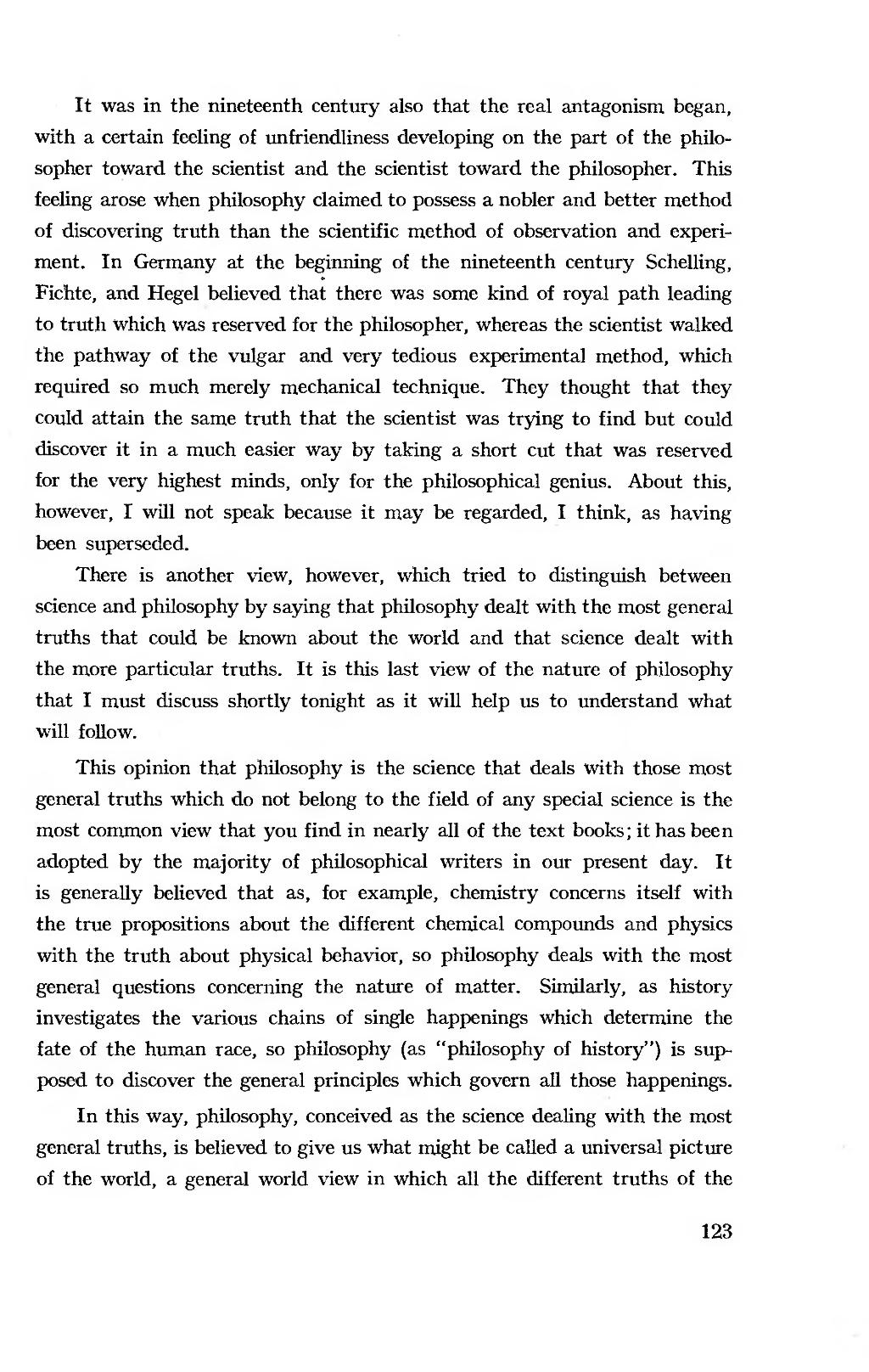It was in the nineteenth century also that the real antagonism began, with a certain feeling of unfriendliness developing on the part of the philosopher toward the scientist and the scientist toward the philosopher. This feeling arose when philosophy claimed to possess a nobler and better method of discovering truth than the scientific method of observation and experiment. In Germany at the beginning of the nineteenth century Schelling, Fichte, and Hegel believed that there was some kind of royal path leading to truth which was reserved for the philosopher, whereas the scientist walked the pathway of the vulgar and very tedious experimental method, which required so much merely mechanical technique. They thought that they could attain the same truth that the scientist was trying to find but could discover it in a much easier way by taking a short cut that was reserved for the very highest minds, only for the philosophical genius. About this, however, I will not speak because it may be regarded, I think, as having been superseded.
There is another view, however, which tried to distinguish between science and philosophy by saying that philosophy dealt with the most general truths that could be known about the world and that science dealt with the more particular truths. It is this last view of the nature of philosophy that I must discuss shortly tonight as it will help us to understand what will follow.
This opinion that philosophy is the science that deals with those most general truths which do not belong to the field of any special science is the most common view that you find in nearly all of the text books; it has been adopted by the majority of philosophical writers in our present day. It is generally believed that as, for example, chemistry concerns itself with the true propositions about the different chemical compounds and physics with the truth about physical behavior, so philosophy deals with the most general questions concerning the nature of matter. Similarly, as history investigates the various chains of single happenings which determine the fate of the human race, so philosophy (as “philosophy of history”) is supposed to discover the general principles which govern all those happenings.
In this way, philosophy, conceived as the science dealing with the most general truths, is believed to give us what might be called a universal picture of the world, a general world view in which all the different truths of the
